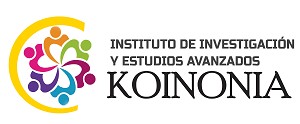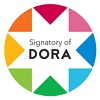Microsoft Teams como entorno virtual de la enseñanza y aprendizaje de la asignatura de Física
Resumen
RESUMEN
El objetivo de este trabajo es analizar las diferentes perspectivas de los actores educativos con respecto al uso de Microsoft Teams en la asignatura de Física de la ciudad de Machala, el tipo de investigación empleado es de cohorte transversal y con un enfoque mixto, cualitativo empleando de entrevista a profesores y cuantitativo por el empleo de encuestas para estudiantes, mecanismo donde se obtuvo datos que permiten conocer la realidad de utilizar estrategias metodológicas en el desarrollo de los acompañamientos pedagógicos y la facilidad que presenta el manejo de este software en la construcción de los conocimientos por medio de sus herramientas incorporadas, los docentes para optimizar los saberes de la asignatura de Física deben diseñar en las planificaciones microcurriculares metodologías activas orientadas Aprendizajes Basados en Proyectos (ABP), propuesta que se pone en consideración para quienes quieran fomentar la autonomía de sus alumnos.
Descargas
Citas
Aparicio-Gómez, O. (2019). Uso y apropiación de las TIC en educación. [Use an appropiation of ICT in education]. Revista interamericana de investigación, educación y pedagogía, 12(1), 253-284. doi: 10.15332/s1657-107X.2019.0001.04
Arruda, R., Prata-Linhares, M., & Paredes, J. (2018). Pedagogical innovation with the use of ICT: perceptions of faculty members from Brazil, Spain and Mexico about their practices. [Innovación pedagógica con el uso de las TIC: percepciones de profesores de Brasil, España y México sobre sus prácticas]. Acta Scientiarum. Education, 40(3). doi:10.4025/actascieduc.v40i3.36217
Banco Interamericano de Desarrollo [BID]. (2020). La educación en tiempos del coronavirus. Los sistemas educativos de América Latina y el Caribe ante el COVID-19. [Education in times of the coronavirus. The education systems of Latin America and the Caribbean in the face of COVID-19.]. Obtenido de https://n9.cl/bjzsa
Bartolucci, J. (2017). La ciencia como problema sociológico [Science as a Sociological Problem]. Sociológica, 32(92), 9-40. Obtenido de https://n9.cl/lvbny
Becerra, M.-T., & Vegas, F. (2015). Visión de las plataformas virtuales de enseñanza y las redes sociales por los usuarios estudiantiles universitarios. Un estudio descriptivo. [College students perception of virtual learning platforms and social networks descriptive study ]. Pixel-Bit. Revista de Medios y Educación(47), 223-230. Obtenido de https://n9.cl/njf2i
Bonilla, J. (2020). Las dos caras de la educación en el COVID-19. [The two sides of education in COVID-19]. CienciAmérica, 9(2), 1-10. doi:http://dx.doi.org/10.33210/ca.v9i2.294
Candelario, O. (2018). El software en el proceso de enseñanza aprendizaje de la Física. [Using software in the teaching-learning process of Physics]. EduSol, 18(63), 1-12. doi:10.1590/1983-21172018200104
Cotino, L. (2019). La enseñanza digital en serio y el derecho a la educación en tiempos del coronavirus. [Digital education taken seriously and the right to education in times of the coronavirus]. Revista de educación y derecho, 1-29. doi:https://doi.org/10.1344/REYD2020.21.31283
Cuevas de la Garza, J. (2020). Docencia entre paredes: buscando las ventanas. [Teaching among Walls: Looking for the Windows]. Revista Latinoamericana de Estudios Educativos, 50, 279-290. Obtenido de https://n9.cl/4e148
Duarte-Herrera, M., Montalvo, D., & Valdes, D. (2019). Estrategias disposicionales y aprendizajes significativos en el aula virtual. [Dispositional strategies and meaningful learning in the virtual...]. Revista Educación, 43(2), 1-15. doi:https://doi.org/10.15517/revedu.v43i2.34038
El universo. (2020). Un millón de estudiantes sin acceso a educación virtual durante la emergencia sanitaria. [One million students without access to virtual education during the health emergency]. Obtenido de https://n9.cl/jha7
Gallardo, K., Alvarado, M., Lozano, A., López, C., & Gudiño, S. (2017). Materiales Digitales para fortalecer el aprendizaje disciplinar en Educación Media Superior: Un estudio para Comprender cómo se suscita el cambio educativo. [Digital Materials to Strength Learning Process in Upper Secondary Education:Understand how Ed]. Reice(2), 89-109. doi:10.15366/reice2017.15.2.005
Hennig, C., & Escofet, A. (2015). Construcción de conocimiento en educación virtual: Nuevos roles, nuevos cambios. [Knowledge Construction in Virtual Education: New Roles, New Approaches]. RED. Revista de Educación a Distancia(45), 1-10. Obtenido de https://n9.cl/yhwt
Hernández, G. (2008). Los constructivismos y sus implicaciones para la educación. [Constructivisms and their implications for education]. Perfiles Educativos, 30(122), 38-77. Obtenido de https://n9.cl/aohx0
Hernández, I., Recalde, J., & Luna, A. (2015). Estrategia didáctica: una competencia docente en la formación para el mundo laboral. [teaching strategy: competence teaching in training for the world of work]. Revista Latinoamericana de Estudios Educativos (, 11(1), 73-94. Obtenido de https://n9.cl/h4mt
La Madriz, J. (2016). Factores que promueven la deserción del aula virtual. [factors that promote the defection of the virtual classroom]. Orbis. Revista Científica Ciencias Humanas, 12(35), 18-40. Obtenido de https://n9.cl/u4pl
Martínez, P. (2006). El método de estudio de caso: estrategia metodológica de la investigación científica. [The case study method: methodological strategy of scientific research]. Pensamiento & Gestión(20), 165-193. Obtenido de https://n9.cl/5ba3
Olaya, A., & Ramírez, J. (2015). Tras las huellas del aprendizaje significativo, lo alternativo y la innovación en el saber y la práctica pedagógica. [On the Traces of significant learning...]. evista Científica Guillermo de Ockham, 13(2), 117-125. Obtenido de https://n9.cl/na7e
Oliveira, M., Reis, P., & Tinoca, L. (2018). A influência do género nas salas de aulas de ciências: um estudo com docentes de 9 ano. [La influencia del género en las aulas de ciencias: un estudio con profesores y alumnos de 9 ° grado]. Ensaio: Avaliação e Políticas Públicas em Educação, 26(99), 1-18. doi:10.1590/S0104-40362017002500969
Olivo, J. (2017). Caracterización de estudiantes exitosos: Una aproximación al aprendizaje de las Ciencias Naturales. [Characterization of successful students: An approach to the learning of the Natural Sciences]. CPU-e Revista de Investigación Educativa(25), 114-143. Obtenido de https://n9.cl/2swh1
Organización de las Naciones Unidas para la Educación, la Ciencia y la Cultura [UNESCO]. (12 de 10 de 2020). UNESCO [UNESCO]. Obtenido de https://n9.cl/w6t6
Osuna, S., & López, J. (2015). Modelo de evaluación educomunicativa en la educación virtual. [Educommunicative Evaluation Model in Virtual Education]. Opción, 31(2), 832-853. Obtenido de https://n9.cl/7qi4
Pardo, V. (2014). La docencia online: ventajas, inconvenientes y forma de organizarla. [Teaching online: advantages, disadvantages and form of organization]. Revista Boliviana de Derecho(18), 622-635. Obtenido de https://n9.cl/9fgx
Petrucci, D. (2017). Visiones y actitudes hacia las Ciencias naturales: consecuencias para la enseñanza. [Visions and attitudes towards natural science: implications for teaching]. REIEC Revista Electrónica de Investigación en Educación en Ciencias, 12(1), 29-43. Obtenido de https://n9.cl/4lt0u
Prada, R., Aloiso, A., & Hernández, H. (2019). Usos y efectos de la implementación de una plataforma digital en el proceso de enseñanza de futuros docentes en matemáticas. [Uses and effects of the implementation of a digital platform in the future teachers in mathematics teaching process]. Revista Virtual Universidad Católica del Norte(57), 137-156. doi:https://doi.org/10.35575/rvucn.n57a10
Ralón, L., Vieta, M., & Vásquez de Prada, M. (2004). (De)formación en línea: acerca de las desventajas de la educación virtual. [(De) online training: about the disadvantages of virtual education]. Comunicar(22), 171-176. Obtenido de https://n9.cl/4014
Rojas, M. (2017). Los recursos tecnológicos como soporte para la enseñanza de las ciencias naturales. [Technological resources as support in natural sciences teaching ]. Hamut’tay Revista semestral de divulgación científica, 4(1), 85-95. doi:10.21503/hamu.v4i1.1403
Sánchez, J. (2009). Plataformas de enseñanza virtual para entornos educativos. [Virtual teaching platforms for educational environments]. Pixel-Bit. Revista de Medios y Educación(34), 217-233. Obtenido de https://n9.cl/idm3y
Saza, I. (2018). Propuesta didáctica para ambientes virtuales de aprendizaje desde el enfoque praxeológico. [Didactic proposal for virtual learning environments from the praxeological approach]. Praxis & Saber, 9(20). Obtenido de https://n9.cl/v1p2
Silva-Quiroz, J., Fernández, E., & Astudillo, A. (2016). Modelo interactivo en red para el aprendizaje: hacia un proceso de aprendizaje online centrado en el estudiante. [interactive network model for learning: towards a learning process online student centered]. Pixel-Bit. Revista de Medios y Educación(49), 225-238. doi:http://dx.doi.org/10.12795/pixelbit.2016.i49.015
Toti, F., & Costa, A. (2018). Motivos para educação científica: uma análise com professores de física a partir da teoria da atividade. [razones para la educación científica: un análisis con profesores de física desde la teoría de la actividad]. Ensaio Pesquisa em Educação em Ciências, 20, 1-23. doi:10.1590/1983-21172018200104
Viñals, A., & Cuenca, J. (2016). El rol del docente en la era digital. [The Role of Teachers in the Digital Age]. Revista Interuniversitaria de Formación del Profesorado, 30(2), 103-114. Obtenido de https://n9.cl/e722i
Zapata, M. (2016). Sistemas de gestión del aprendizaje – Plataformas de teleformación. [Learning management systems - Teletraining platforms]. RED. Revista de Educación a Distancia(50), 1-55. doi:http://dx.doi.org/10.6018/red/50/5
Derechos de autor 2020 Vicente Juvenal Mendoza-Noriega, Darwin Gabriel García-Herrera, Claudio Fernando Guevara-Vizcaíno, Juan Carlos Erazo-Álvarez

Esta obra está bajo licencia internacional Creative Commons Reconocimiento-NoComercial-CompartirIgual 4.0.
CC BY-NC-SA : Esta licencia permite a los reutilizadores distribuir, remezclar, adaptar y construir sobre el material en cualquier medio o formato solo con fines no comerciales, y solo siempre y cuando se dé la atribución al creador. Si remezcla, adapta o construye sobre el material, debe licenciar el material modificado bajo términos idénticos.
OAI-PMH URL: https://cienciamatriarevista.org.ve/index.php/cm/oai














